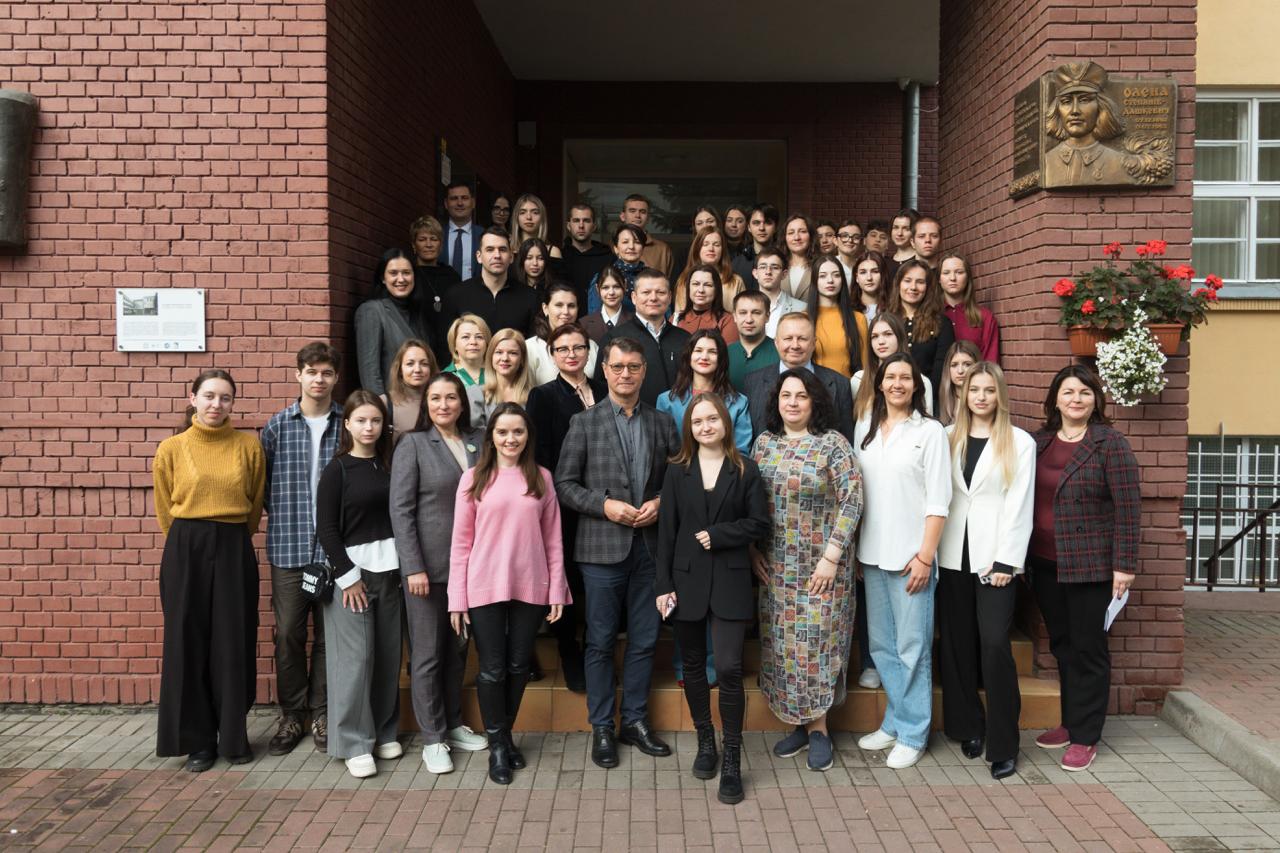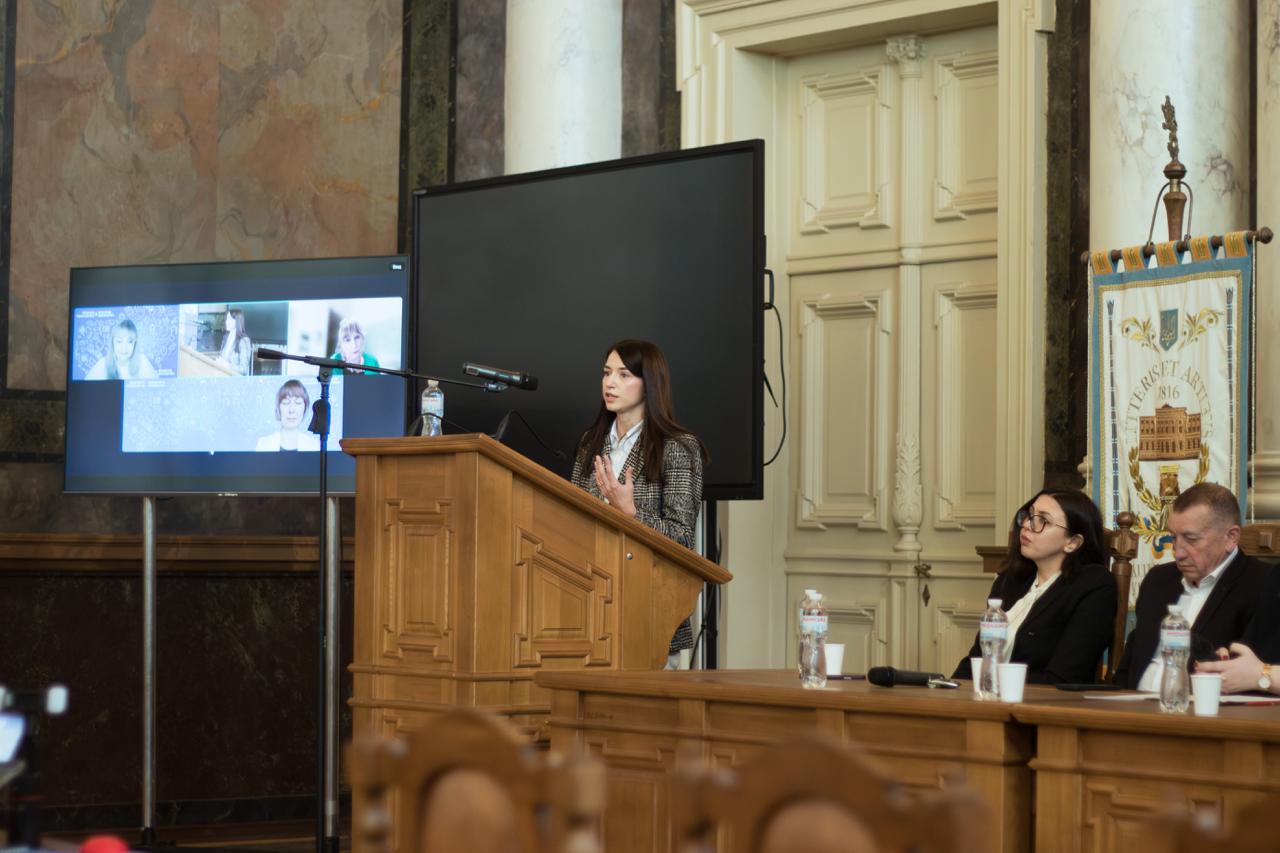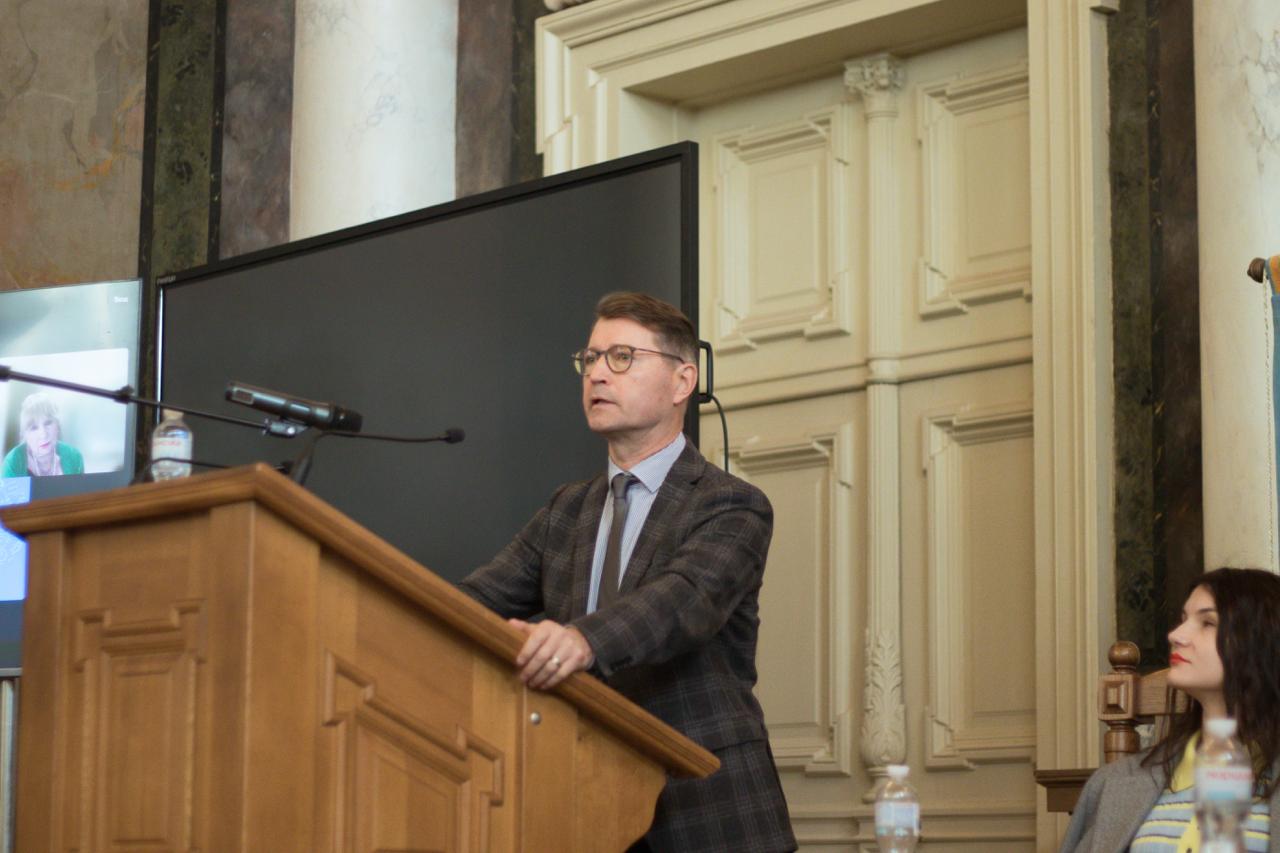EU Project Pravo-Justice Supported the International Conference ‘Mediation & Universities 2.0’
 On 14-15 November 2025, the International Academic and Practical Conference ‘Mediation & Universities 2.0’ was held at the Lviv Polytechnic National University and Lviv University of Trade and Economics, both in person and online. The event brought together academics, lecturers, students, mediation practitioners, representatives of the judiciary, business and public authorities to discuss current trends and prospects for the development of mediation in Ukraine.
On 14-15 November 2025, the International Academic and Practical Conference ‘Mediation & Universities 2.0’ was held at the Lviv Polytechnic National University and Lviv University of Trade and Economics, both in person and online. The event brought together academics, lecturers, students, mediation practitioners, representatives of the judiciary, business and public authorities to discuss current trends and prospects for the development of mediation in Ukraine.
Ukrainian Academy of Mediation organised the event in collaboration with leading Ukrainian universities and professional associations, with support from international technical assistance projects – EU Project Pravo-Justice, CONSENT, and Strengthening Ukraine’s EU Accession in the Rule of Law (3*E4U).
The event agenda included plenary sessions and thematic panel discussions on the development of mediation in Ukraine across the areas of justice, business, and employment, as well as mediation as a social service and its role in education and research. Participants devoted particular attention to the role of universities in fostering a professional culture of peaceful dispute resolution and in developing student mediation services. The conference programme also featured workshops for students and lecturers and concluded with an award ceremony for the Creative Mediation competition.
Iryna Khomyshyn, Vice-Rector of Lviv Polytechnic National University, noted that mediation is not only a method for resolving disputes, but also a language of understanding and a culture of trust, and that the university provides the environment where this culture is nurtured.
Petro Kutsyk, Rector of Lviv University of Trade and Economics, emphasised incorporating elements of mediation into the educational process is the right step, as the university environment requires mediation, modern dialogue, and mutual understanding.

Oksana Tsymbrivska, Team Leader at EU Project Pravo-Justice, said that it is important to develop mediation in Ukraine in the context of European integration. She emphasised that these matters are clearly outlined in the Rule of Law Roadmap and the recommendations of the European Commission.
In particular, the 2025 European Commission Enlargement Report on Ukraine notes that the implementation of the Law on Mediation remains insufficient. The report highlights that Ukraine needs a national system for collecting mediation data, the preparation and implementation of mandatory mediation for certain categories of disputes, and the development of arbitration.
“These recommendations set clear European standards. They emphasise that mediation is an important indicator of the judicial efficiency and institutional capacity of the country,” she stressed.
 Virgilijus Valančius, Senior International Expert at EU Project Pravo-Justice, Judge of the General Court of the EU (2016–2023), noted that, based on his extensive experience in both national and European courts, the best resolution to a dispute is one that the parties reach themselves.
Virgilijus Valančius, Senior International Expert at EU Project Pravo-Justice, Judge of the General Court of the EU (2016–2023), noted that, based on his extensive experience in both national and European courts, the best resolution to a dispute is one that the parties reach themselves.
“That is why mediation is a vital component of the modern justice system and an integral part of European approaches to conflict resolution. In certain cases, such as family disputes, several EU Member States have already introduced mandatory mediation, fully in line with EU law and the jurisprudence of the Court of Justice. I am confident that Ukrainian society is ready for the broader use of mediation, just as other EU Member States have recognised,” he said.
According to Luiza Romanadze, President of the Ukrainian Academy of Mediation, this conference is an example of cooperation between diverse stakeholders and participants to advance mediation.
“We understand the value of mediation, and it is encouraging that the number of people who believe in its benefits continues to grow every day,” she concluded.
The International conference ‘Mediation & Universities 2.0’ became a platform for the exchange of experience between Ukrainian and international experts, integrating academic approaches, practical solutions, and modern educational practices to further establish mediation in Ukraine as an effective tool for dispute resolution and strengthen the culture of dialogue.